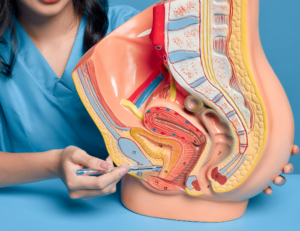Sleepless nights are the reality for most new parents but, pregnant women know sleep troubles start long before the baby makes their arrival. Hormones, changing body, and stress levels compromise sleep during pregnancy. Lack of sleep can affect energy and mood and even make it more likely to experience pregnancy complications. Longer, more painful labors, higher cesarean rates, increased weight gain, higher risk of preterm birth, and increased inflammation have all been associated with sleep deprivation during pregnancy.
We know lack of sleep is a problem. But how do we solve it? The struggle to rest has many influencing factors such as baby kicks, leg cramps, weight gain, frequent urination, back pain, and sinus congestion. Here are some tips to help you get a better night’s sleep while pregnant:
- Create a Relaxing Night Routine: Take a warm shower. Read a book in bed. Apply lotion and give yourself a massage (or ask your partner to pamper you!) Do some deep breathing exercises or stretches to unwind.
- Have a Regular Bed and Wake Schedule: Maintaining a regular sleep/wake cycle will help you prioritize sleep and get your body into a natural rhythm. A sleep schedule will also help you feel more alert and awake during the day.
- Assume the Position: Avoid sleeping on your back. During the third trimester, expecting mothers are recommended to sleep on their left side. This position increases blood and nutrient flow to the fetus, uterus, and kidneys. If side-sleeping is difficult, try using a pregnancy pillow to increase your comfort. If you’re experiencing breathing problems, try elevating your head with an extra pillow.
- Be Active: Unless your doctor advises against it, exercise regularly. Being more active during the day will not only increase circulation and boost your mood, but you’re also more likely to fall asleep easier at night.
- Eat and Drink Smart: Avoid spicy foods to avoid nighttime heartburn. Eat a light dinner and refrain from eating within 3-4 hours before bedtime. Limit caffeine in your diet. We suggest not drinking caffeine after lunch. If acid reflux has been bothering you, avoid carbonated drinks and spicy and acidic foods like citrus and tomatoes.
- Turn Off: Avoid electronics at least an hour before bedtime. Blue light can drastically impact your body’s ability to get to sleep. If you really can’t avoid it, turn down your screen brightness or try blue-light-blocking glasses.
- Keep Leg Cramps at Bay: Leg cramping and restless leg syndrome are common during pregnancy. Try some gentle leg stretches before bed. Eat a calcium-rich diet and stay well-hydrated. During sudden cramps, try flexing your feet and pressing them against the foot of your bed.
When in doubt, talk with your physician. Our OB/GYN team at WomanCare in Arlington Heights and Schaumburg, IL is here to serve you and help you navigate the changes during pregnancy. We want you to rest comfortably, knowing you’re taken care of by the best. Make your appointment today.








